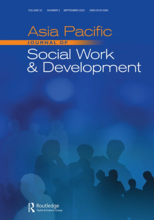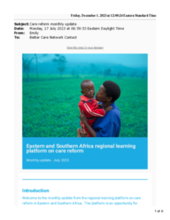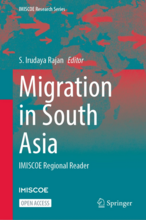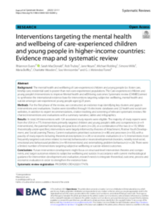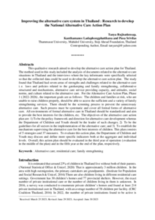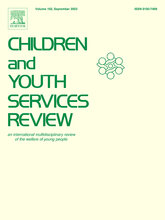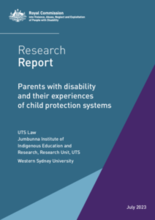Displaying 561 - 570 of 10391
Dainius Puras, UN Special Rapporteur on the right to physical and mental health (2014 to 2020) and CHIP Special Advisor, discusses the importance of identity rights from a non-legal perspective.
This paper presents findings from a qualitative study that explored children's and families' experiences of alternative care in Thailand. The study used arts-based methods to engage 160 children living in a range of care settings.
This study aimed to examine the sense of family belonging of individuals with childhood institutional care experience through personal details, institutional care, and post-institutional-care variables. This study was conducted with 313 adults with institutional care experience during childhood in Western Asia.
This paper provides the first conceptual model for, and systematic scoping review of, callousness/unemotionality in children and young people with experiences of alternative care across the globe.
This is the monthly update of the Eastern and Southern Africa Regional Learning Platform published in July 2023.
This paper examines South-South migration by investigating the stay-behind families of female migrants in Bangladesh with a focus on their unaccompanied children.
This global systematic review aimed to synthesise the international evidence base for interventions targeting subjective wellbeing, mental health and suicide amongst care-experienced young people aged ≤ 25 years.
This qualitative research aimed to develop the alternative care action plan for Thailand. The method used in this study included the analysis of documents related to the alternative care situations in Thailand and the interviews where the key informants were specifically selected so that the collected data could be used to develop the alternative care action plan.
This study examines early adulthood outcomes—incarceration and teen parenthood—among youth in Wisconsin who entered foster care in early-to-middle childhood (ages 5–10).
This research sought to improve understanding of the experiences of parents with disability of Australian child protection systems, paying particular attention to the experiences of First Nations and culturally and linguistically diverse parents with disability.


